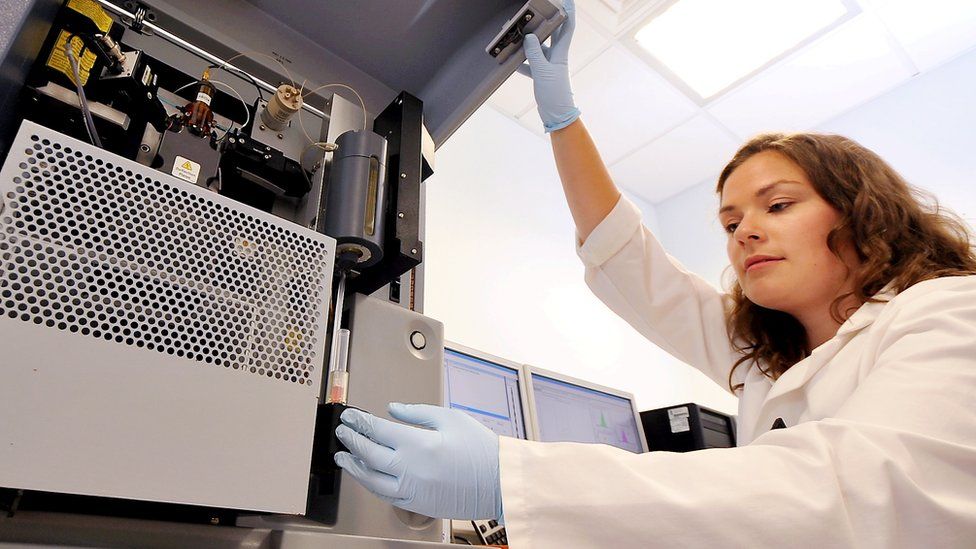Oesophageal cancer tests raise hopes for earlier detection
- Published

Scientists are perfecting new methods to spot a difficult-to-diagnose cancer.
Teams from the Cancer Research UK Cambridge Institute and Swansea University are working on separate diagnostic techniques to detect oesophageal or foodpipe cancer.
Earlier detection could help save lives, as the disease is often picked up only when it is well advanced.
One technique uses a light-emitting dye; the other involves a test for mutations in red blood cells.
Both techniques still need considerable work before being made widely available, researchers say.
About 7,800 people die from oesophageal cancer every year in the UK. For men it is the fourth most common cause of cancer death.
Lack of symptoms in the early stages of the disease - when treatment is most likely to work - make early detection difficult.
The team from Cambridge, led by Dr Sarah Bohndiek, used a light-emitting dye that sticks to healthy oesophageal cells but not to pre-cancerous cells. Their work is published in the Journal of Biomedical Optics.
The dye would be sprayed on oesophageal tissue samples taken from patients with an increased risk of developing the disease. It would then emit infra-red light, a colour just beyond red. Cancerous tissue, not coated in the dye, would be identified as being dark and not emitting light.
Dr Bohndiek said: "People who are at a high risk of developing oesophageal cancer, such as those with Barrett's oesophagus, could be closely monitored with this technique. And removing patches of pre-cancerous cells could prevent some cases of oesophageal cancer."
Second test
The second test, developed at the Swansea University Medical School and announced at the British Science Festival, uses a simple blood sample and looks for mutated red blood cells as an indication of oesophageal cancer.
The mutated blood cells are a side effect of the cancer and their cell recognition proteins are no longer able to attach to them. These "naked" cells are detectable using standard laboratory equipment in any hospital pathology department.
The minimally invasive test which takes a few hours to perform at a cost of £35 could be used to screen those at risk, aiding in early detection.
The research, which is not yet published, has been fronted by Prof Gareth Jenkins and optimised over the past four years with more than 300 patients.
The number of mutated red blood cells seen in healthy subjects was on average five cells in every million, while in those diagnosed with cancer there was up to a 1,000% increase in the number of mutated cells.
Dr Cathy Burton, joint national lead GP adviser at Macmillan Cancer Support told the BBC: "To give people with oesophageal cancer the best possible chance of survival, it is absolutely essential that we speed up the process of diagnosis.
"Finding easier and more efficient ways of spotting it at the earliest possible stage plays a key role in making that happen."
Prof Jenkins said that following further tests and work he would like to see the blood test available to the public in four to five years' time.